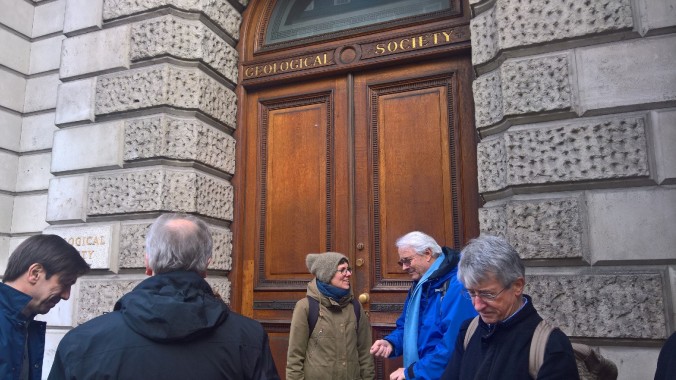Without life, Planet Earth would look, smell, sound and work in live. For life the human eye can easily see (trees, lions, termites, corals, seaweed) the impact of life is pretty obvious, although it is still often more profound than you might think. For micro-organisms (bacteria, algae, archaea, fungi), this impact sometimes gets overlooked. Making this deficit of recognition much worse is the sheer age of the time when the pre-microbe Earth was first changed to the insistent push of microbial activity. The oldest land vertebrates (~385 million years ago), land plants (~472 million years ago), land arthropods (~490 million years ago), coral (~465 million years ago) and fern-like marine organism (~565 million years ago) are pretty recent innovations compared to the oldest microbes (at least 3,500 million years). Strangely, this makes identifying the range of impacts on Planet Earth quite difficult to establish: we have almost no fossil record of the Earth without them.
This is why a group of us put the 2017 Lyell meeting together. We wanted to lift the lid on the range, significance and complexity of the way micro-organisms impact of planet earth today, and explore the significance of this impact in the past. Only through bringing these impacts to light and understanding them can we understand, and even harness, these communities for the benefit of society. This is potentially as profound a journey as the first human efforts to understand the dog, the horse, cereal plants or apple orchards. If we want microbes to help in stabilising sediment in reservoirs or – very close to the heart of the R3AW project – removing the pollutants we persistently put into their environment, we need to understand how they live their lives.

The range of impacts is simply breath-taking. Microbes can accumulate metals, make minerals form, stop sediment from being eroded and help sediment get deposited. They can even do this in dryland environment, where you would think conditions are pretty unfavourable to these communities. And they have been doing it for a long, long time.
Even for those of us who already know beyond question that we live, and have always lived, in the Age of the Microbe, Lyell ’17 expanded our horizons. Those who started the day perhaps more innocent of this emerging field of science will never quite look at the world the same way again. All of us came away more convinced than ever that the absence of microbes from the nature documentaries on our television has blinded the world to their huge importance. It is an uncharacteristic oversight that the Planet Earth team have failed to give Sir David Attenborough the opportunity to introduce us to half of the biomass our world possesses.

Where this exploration will take us, none of us yet know. However, it is already clear that discovery of how microbes on Earth change how the planet operates is every bit as profound as the discovery of microbes beyond the Earth itself. We have made a start on this journey, but we have a very long way to go.
Written by Dr Mike Rogerson (R3AW) University of Hull.